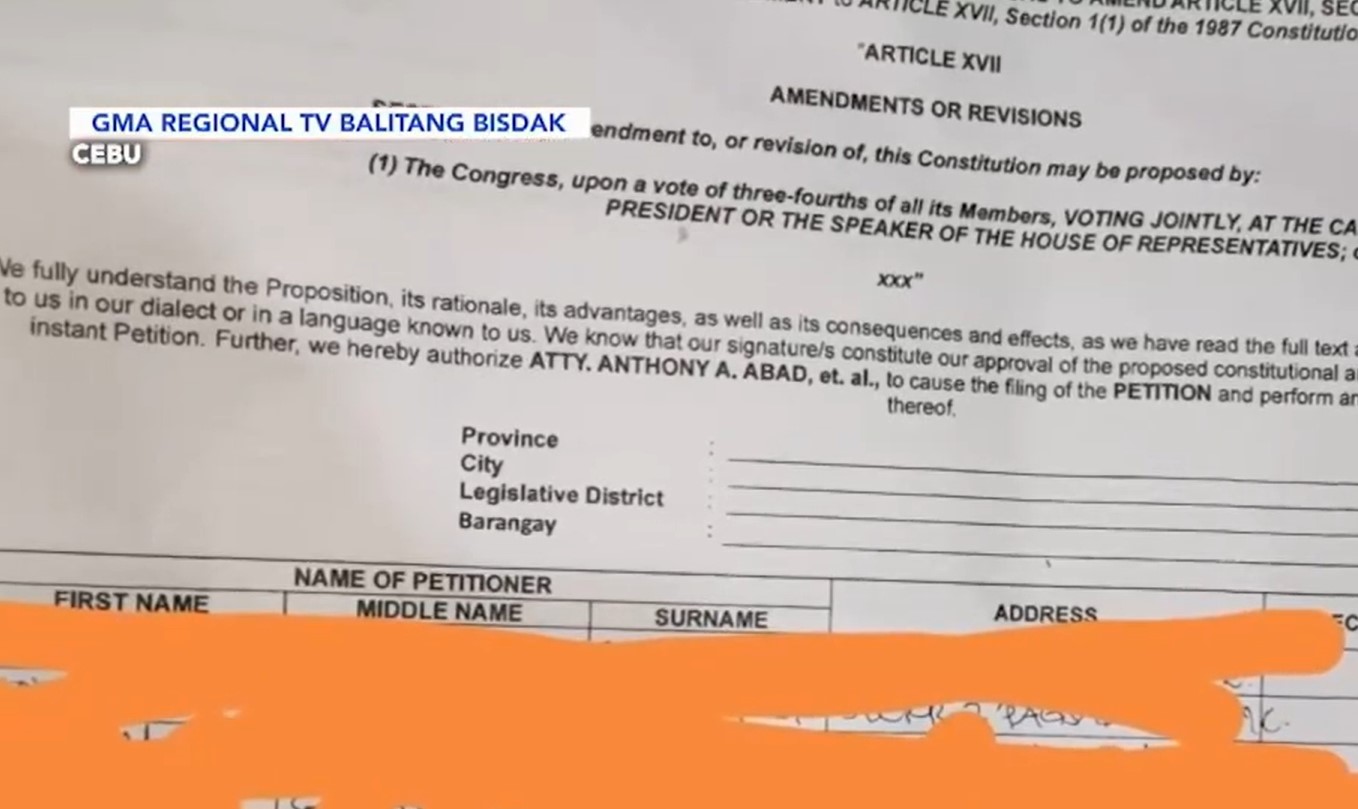Cha-cha via people’s initiative bill filed in Senate
By HANA BORDEY, GMA Integrated News Published March 12, 2024 5:32pm A bill enabling charter change (Cha-cha) through people’s initiative (PI) and penalizing the use or promise of money to gather signatures has been filed in the Senate. Senate Minority Leader Aquilino “Koko” Pimentel III filed Senate Bill No. 2595 or the proposed People’s Initiative […]


By HANA BORDEY, GMA Integrated News
A bill enabling charter change (Cha-cha) through people’s initiative (PI) and penalizing the use or promise of money to gather signatures has been filed in the Senate.
Senate Minority Leader Aquilino “Koko” Pimentel III filed Senate Bill No. 2595 or the proposed People’s Initiative and Referendum Act of 2024 to replace Republic Act 6735.
RA 6735 was passed in 1994 but was deemed “inadequate” by the Supreme Court to cover the system of initiative in amending the charter and “fails to provide” sufficient standards for subordinate legislation on the part of the Commission on Elections, Pimentel noted.
“As a measure to not only fill in the gaps found in RA No. 6735 but to also update the system of people’s initiative and referendum to reflect the present-day political conditions, it is proper that this bill be introduced as a new measure, rather than an amendment to the existing law,” Pimentel said in his explanatory note.
Under SB 2595, any registered voter or group of voters may initiate a people’s initiative by filing a verified petition with the Commission on Elections (Comelec).
The petition to amend the constitution through PI should contain the following:
-Complete name, address, and personal circumstances of the proponents, to be called the petitioners
-Complete text of the proposed amendment to the Constitution
-Reasons
-Signature sheets signed by at least 12 percent of the total number of registered voters, of which every legislative district must be represented by at least 3 percent of the registered voters therein
-Starting date when the signatures were collected
The petition should also include the following statement, among others:
-The signature sheets attached to the petition contain the complete text of the proposed amendment to the Constitution
-The proposed amendment was explained to the signatories in a language or dialect known to them before their signatures were affixed
-The reasons for the proposed amendment to each signatory were thoroughly explained before signing it
-The petition was filed within 18 months from the date the signature was affixed
-That no money or anything of value was given, offered, or promised to be given to procure signatures
-That no funds were received from those disqualified to contribute for purposes of partisan political activity under the Omnibus Election Code and other election laws
The bill mandates the Comelec to determine the sufficiency in form and substance of the petition and verify the number of signatures and their authenticity within 90 days.
The decision of the Comelec may be brought to the Supreme Court by a special civil action for certiorari.
A plebiscite will be scheduled by the Comelec not earlier than 60 days but not later than 90 days from its certification of the sufficiency of the petition.
Prior to the date of the plebiscite, the Comelec shall publish the complete text of the proposed amendment to the Constitution once a week for two consecutive weeks in a newspaper of general nationwide circulation.
The amendment to the constitution shall take effect immediately upon its ratification by a majority of the votes cast in a plebiscite.
SB 2595 likewise prohibits a petition proposing a revision of the Constitution. The bill defines revision as a change or alteration of the Constitution which changes the basic constitutional structure or which affects the functioning of various parts of agencies within the constitutional structure.
Any person who gives, offers, or promises money or anything of value, any office or employment, franchise or grant, whether in public or private, to induce anyone to sign the petition may face six to nine years of jail time.
If it is committed by a public officer, a jail time of nine to 12 years shall be meted. All his benefits will be forfeited and he will be perpetually disqualified from holding public office.
Six to nine years imprisonment will likewise be slapped on any person who directly or indirectly uses public funds or money held in trust by public financing institutions or by government offices, and government publication arms for any signature campaign for PI.
Any public officer who directly or indirectly solicits signatures in support of a petition to push for PI will also face nine to 12 years in jail.—LDF, GMA Integrated News














